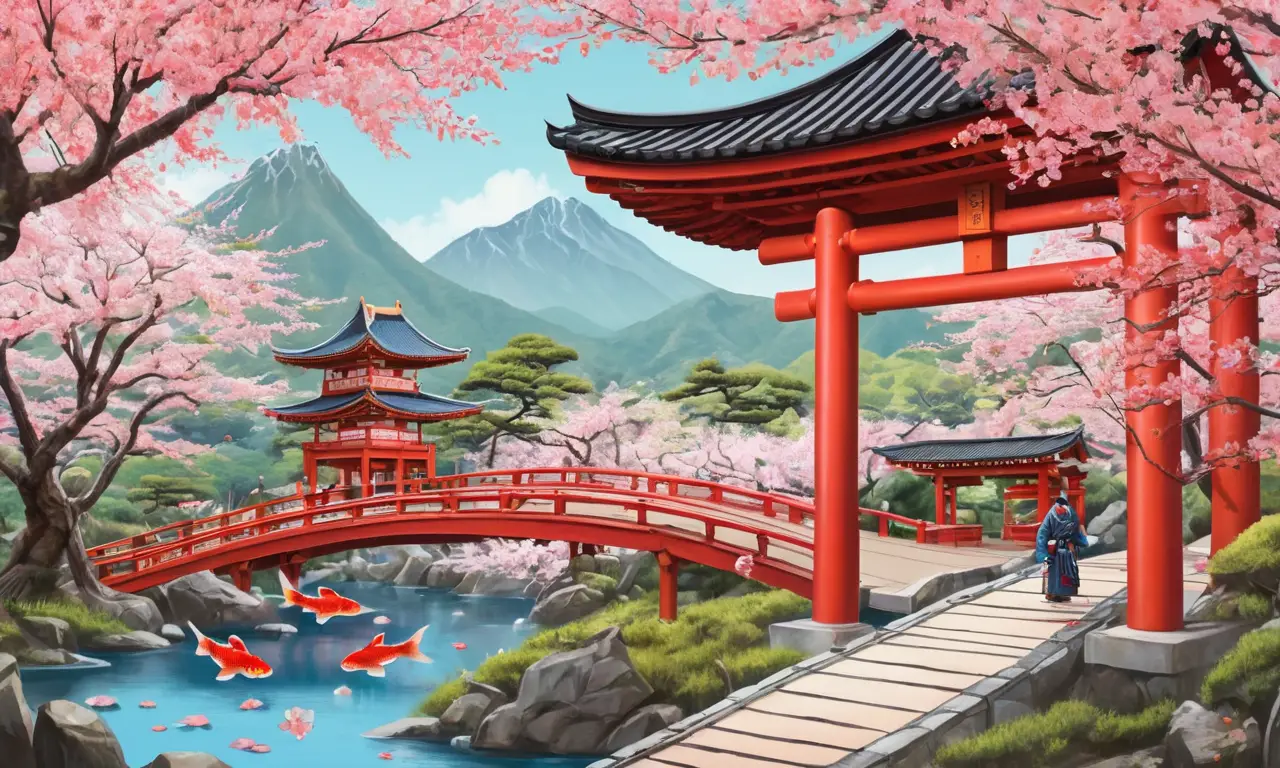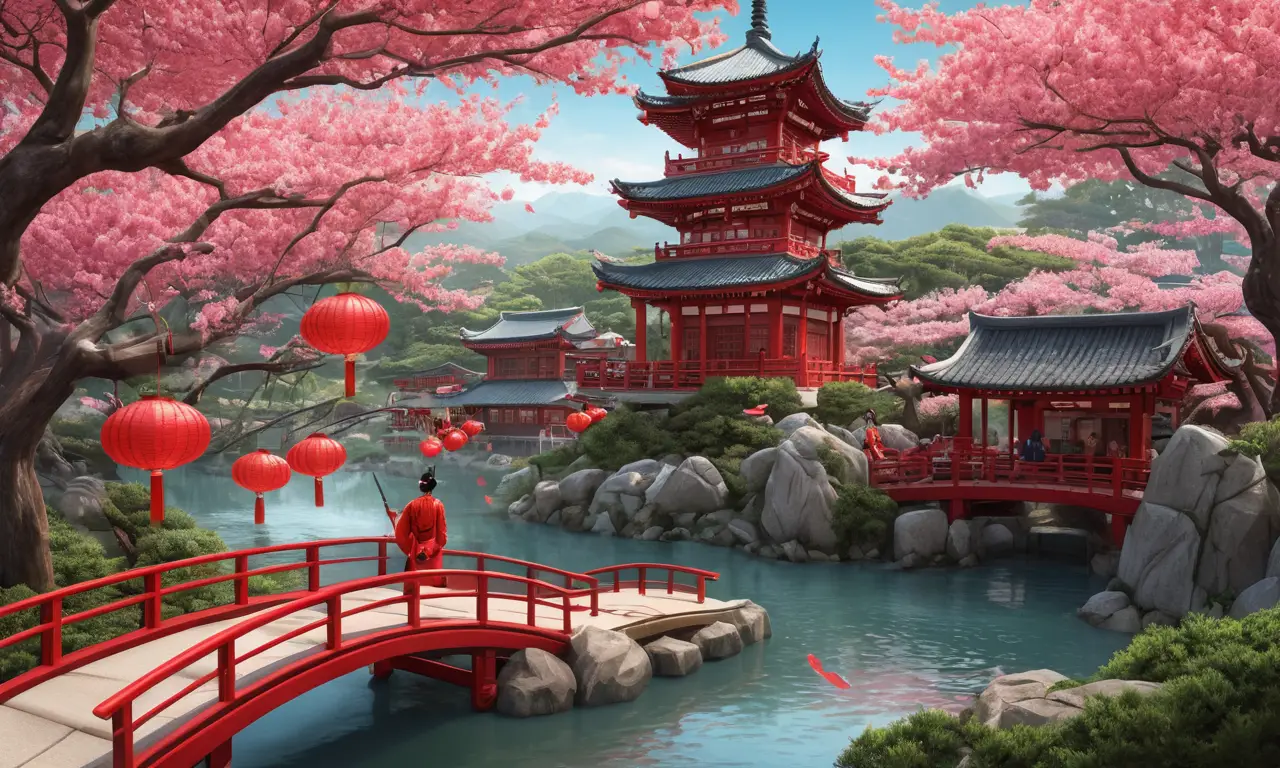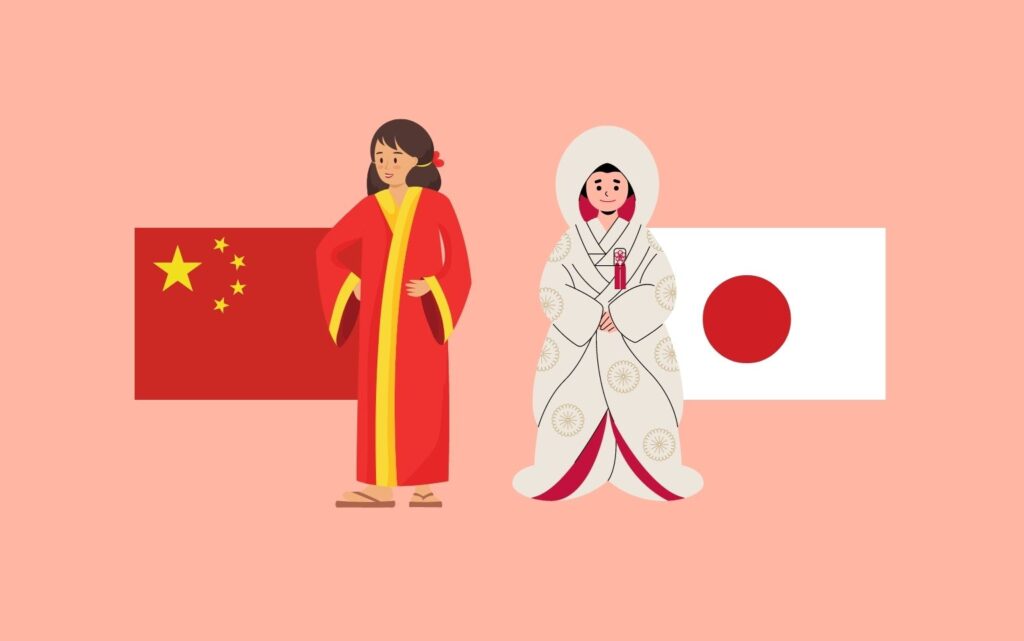The vibrant tapestry of East Asia boasts two distinct yet interconnected cultures: Chinese and Japanese. While both share a rich history and philosophical foundations, their unique expressions manifest in fascinating traditions, values, and societal norms. This exploration delves into the captivating nuances that set these cultures apart, illuminating the diverse ways they navigate life, relationships, and the world around them.
This article will first examine the core tenets of Chinese culture, highlighting its emphasis on family, individualism, and national identity. Subsequently, we’ll delve into the values that shape Japanese culture, focusing on harmony, group cohesion, and respect for hierarchy. We’ll then explore the profound influence of Confucianism on both cultures, followed by a discussion of their shared East Asian heritage. Finally, we’ll analyze the key differences between these two fascinating civilizations, providing valuable insights into their unique identities.
Chinese Culture Traditions
Chinese culture, renowned for its millennia-old history and diverse regional variations, places immense value on family ties, ancestral reverence, and a strong sense of national identity. Traditions like ancestor veneration, filial piety, and the celebration of Lunar New Year are deeply ingrained in Chinese society.
Family plays a central role in Chinese culture, with extended families often living together or in close proximity. Respect for elders is paramount, and children are expected to honor and care for their parents throughout their lives. This emphasis on familial bonds fosters a strong sense of community and collective responsibility.
Chinese cuisine, renowned for its diverse flavors and regional specialties, reflects the culture’s emphasis on communal dining. Meals are often shared with family and friends, symbolizing togetherness and harmony. The act of sharing food strengthens social connections and reinforces cultural values.
Japanese Culture Values

Japanese culture, characterized by its emphasis on harmony, group cohesion, and respect for hierarchy, fosters a unique societal structure. Practices like bowing, tea ceremony, and the concept of “wa” (harmony) are integral to Japanese life.
Respect for authority figures is deeply ingrained in Japanese society. Bowing serves as a formal gesture of deference, conveying respect and acknowledging social status. This hierarchical system permeates various aspects of life, from business interactions to interpersonal relationships.
The concept of “wa” (harmony) guides Japanese behavior and emphasizes the importance of maintaining social balance and avoiding conflict. Individuals prioritize group well-being over personal gain, fostering a sense of collective responsibility and cooperation.
Confucianism Influence
Confucianism, a philosophical system originating in ancient China, has profoundly influenced both Chinese and Japanese cultures. Its core tenets emphasize ethical conduct, social harmony, and the importance of education.
Confucian principles like filial piety, respect for elders, and the pursuit of knowledge have shaped moral values and societal norms in both cultures. The emphasis on education is particularly evident in both societies, where academic achievement is highly valued.
While Confucianism’s influence is undeniable, it has been interpreted and adapted differently in each culture. Chinese society tends to emphasize collective responsibility and social order, while Japanese culture places greater emphasis on harmony and group cohesion.
East Asian Heritage

Both Chinese and Japanese cultures share a rich East Asian heritage, influenced by common historical events, geographical proximity, and cultural exchange. Buddhism, introduced from India, has played a significant role in shaping both societies’ spiritual beliefs and artistic expressions.
The influence of Chinese culture on Japan is particularly evident in its language, art, and literature. However, Japanese culture has also developed its own unique identity, distinct from its Chinese counterpart. This interplay between shared heritage and cultural divergence creates a fascinating tapestry of similarities and differences.
Cultural Differences
Despite their shared heritage, Chinese and Japanese cultures exhibit distinct differences in values, traditions, and social norms.
One key difference lies in the emphasis on individualism versus collectivism. While Chinese culture values individual achievement and personal ambition, Japanese culture prioritizes group harmony and collective well-being. This distinction is reflected in their respective approaches to work, family life, and social interactions.
Conclusion
Exploring the fascinating world of Chinese and Japanese cultures reveals a captivating interplay of similarities and differences. While both share influences from Confucianism and East Asian heritage, they have developed unique expressions that reflect their distinct values, traditions, and societal norms. Understanding these nuances provides valuable insights into the rich tapestry of East Asian civilizations and fosters greater appreciation for the diversity of human experience.



